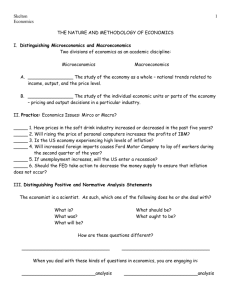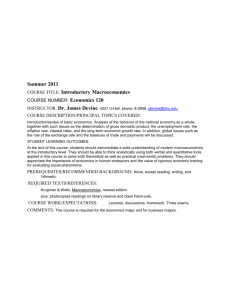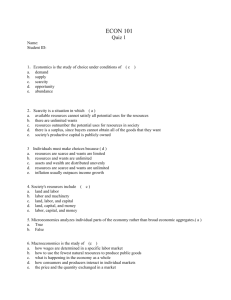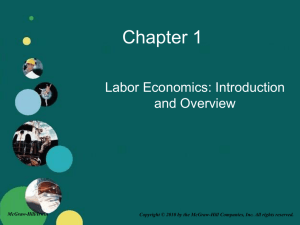AP Macroeconomics Notes (Boyes and Melvin, 7th ed.) Chapter 1
advertisement
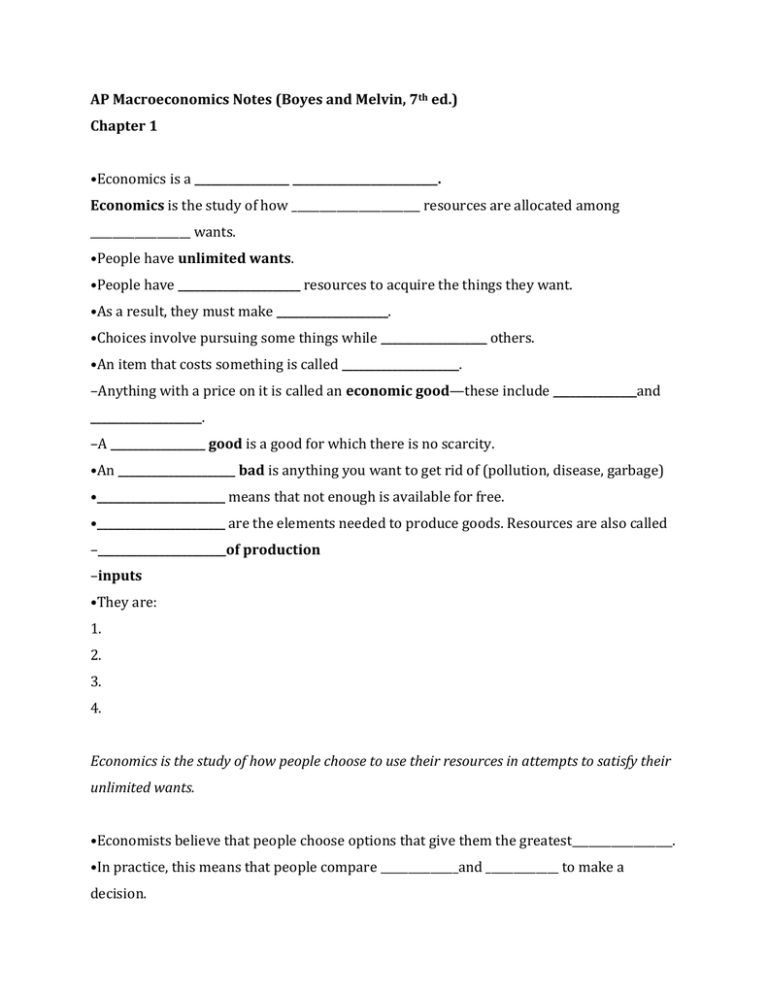
AP Macroeconomics Notes (Boyes and Melvin, 7th ed.) Chapter 1 •Economics is a _________________ __________________________. Economics is the study of how _______________________ resources are allocated among __________________ wants. •People have unlimited wants. •People have ______________________ resources to acquire the things they want. •As a result, they must make ____________________. •Choices involve pursuing some things while ___________________ others. •An item that costs something is called _____________________. –Anything with a price on it is called an economic good—these include _______________and ____________________. –A _________________ good is a good for which there is no scarcity. •An _____________________ bad is anything you want to get rid of (pollution, disease, garbage) •_______________________ means that not enough is available for free. •_______________________ are the elements needed to produce goods. Resources are also called –_______________________of production –inputs •They are: 1. 2. 3. 4. Economics is the study of how people choose to use their resources in attempts to satisfy their unlimited wants. •Economists believe that people choose options that give them the greatest__________________. •In practice, this means that people compare ______________and _____________ to make a decision. •Costs and benefits are sometimes referred to as negative and positive __________________. Hence ____________________ matter. •Positive Economics –Focuses on ____________________________. –Analyzes actual, measurable outcomes. –Does not impose value judgments, person feelings or convictions. –Positive economics is economics as a science. •Normative Economics –Focuses on what someone thinks _________________ _____ _______ or “should be”. –Makes ethical judgments—value judgments. •Fallacy of Composition –The mistaken assumption that what is true of a part is also true of the whole. •Association is not Causation –The mistaken assumption that because two events occur together, one must cause the other. Also given as “correlation is not causation”. •Violation of Ceteris Paribus –Ceteris Paribus: Latin for “__________ ____________ ______________”. –This occurs when one attempts to analyze the effect of one thing while holding everything else constant, when in fact other things have changed. •Macroeconomics –Studies the economy at the__________________ _____________, at the level of the economy as a whole. –Examines _____________ consumer behavior, ____________ employment, __________ production, _____________ sales, etc.

